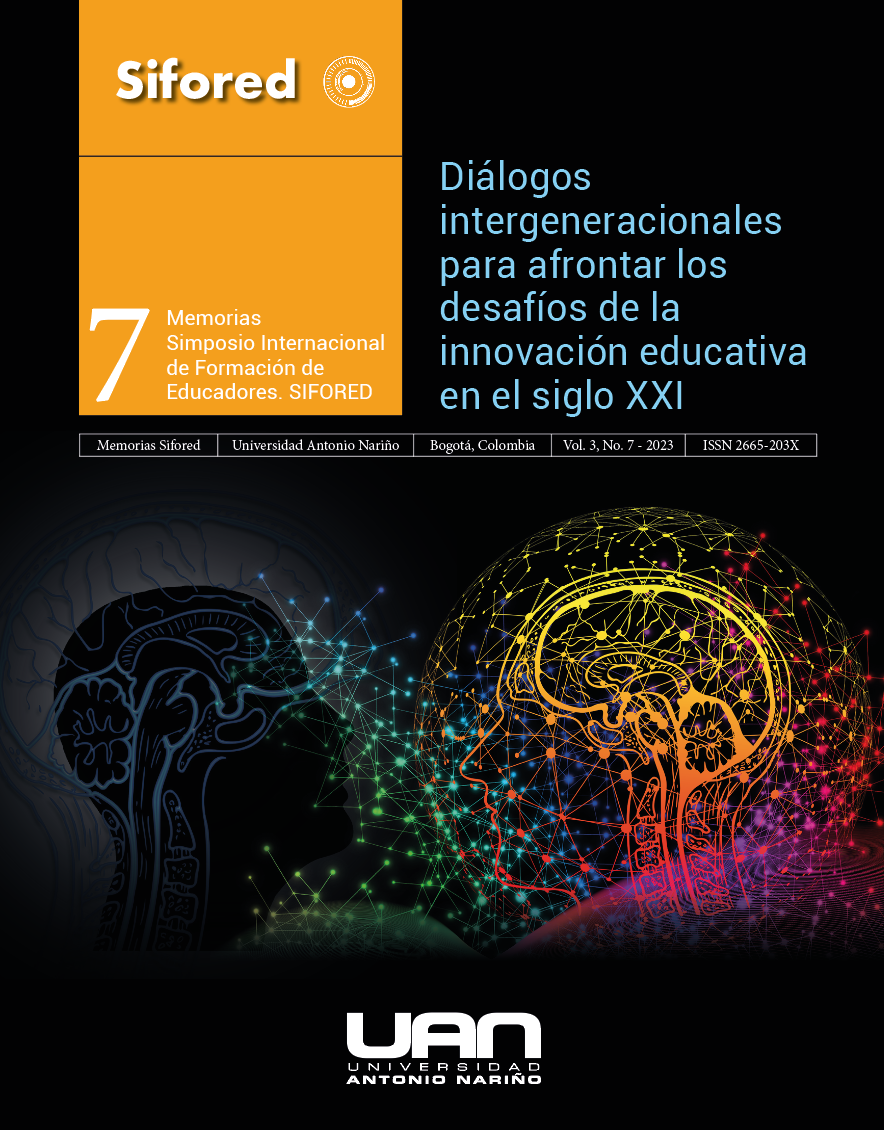Acerca de los (des)acuerdos-aritméticos e hipótesis heurísticas entorno a un problema no rutinario diofántico (de aula)
Keywords:
Curriculum renewal, basic education, Mathematics, Reasoning, Problem solvingAbstract
The Greeks introduced the "mathematical" under the determination of: things, as they arise and present themselves; things as they are produced by hand by man, and are present as such; Things, insofar as they are in use and in permanent disposition, can be stones and similar things, or expressly manufactured things with which we deal, whether we define them, use them or transform them, or whether we only contemplate them (Heidegger, 1975). Regarding deep disagreements, Robert J. Fogelin asks in his work: What happens to arguments when the context is neither normal nor close to normal? and under this panorama he dares to say that the argumentative context becomes less normal, and argumentation to this extent becomes impossible, and he tries to leave – initially – for said event by the way, that the conditions for argumentation do not exist, and that The language of argument may persist, but it ends up being useless since it appeals to something that does not exist: a shared background of beliefs and preferences. Under a qualitative analysis, and situated in the classroom, the heuristic route is projected to provide a solution to a problem that nests in geometry.
Downloads
References
Ávila-Hernández, Ó. (2016). Sobre la doxa y el logos en el aula de matemáticas frente a la argumentación. Revista colombiana de Matemática Educativa, 1(1b), pp. 40-42.
Ávila-Hernández, Ó. (2023). Definiciones ostensivas, analiticidad e invariantes (aritméticos) de aula: heurística diofántica y matemática-eidal (Investigación Tesis de Maestría). Universidad Autónoma de Bucaramanga, Bucaramanga. Colombia.
Cambriglia, V. (2018). Emergentes colectivos de generalización en la entrada al Álgebra. Tesis doctoral, Universidad de Buenos Aires, Buenos Aires.
De León, M. y Timón, A. (2017). La engañosa sencillez de los triángulos: de la fórmula de Herón a la Criptografía. Madrid: Federación española de sociedades de profesores de matemáticas.
De Lorenzo, J. (1998). La matemática: de sus fundamentos y crisis. Madrid, España: Editorial Tecnos
Godino, J.D. y Batanero, C. (1994). Significado institucional y personal de los objetos matemáticos. Recherches en Didactique des Mathématiques 14(3), 325-355.
González, F. (2013). Introducción al pensamiento algebraico. Estudio y reconocimiento de patrones. Núcleo de Investigación en Educación Matemática Universidad Pedagógica Experimental Libertador, Venezuela.
González, W, y Ávila-Hernández, Ó. (2017). Pruebas y discurso matemático en los educandos de Secundaria. En: Salcedo. A (Comp.). Alternativas Pedagógicas para la Educación Matemática del Siglo XXI, (pp. 131-144). Caracas: Centro de investigaciones educativas, Escuela de Educación. Universidad Central de Venezuela. Venezuela.
Hamilton, A.G. (1981). Lógica para matemáticos. Madrid, España. Ediciones Paraninfo.
Heidegger, M. (1975). La pregunta por la cosa. Buenos Aires: Editorial Ediciones Orbis.
Mejía-Saldarriaga, D. (2019). Presentación y traducción de Robert J. Fogelin: La Lógica de los desacuerdos profundos. Revista Iberoamericana de Argumentación, 19, (pp. 84-99).
Munkres, J.R. (2002). Topología. Madrid, España: Pearson Educación.
Rodríguez, M.A (2015). Resolución de problemas. En: Pochulu. M.D, Rodríguez. M (Comp.). Educación Matemática Aportes a la formación docente desde distintos enfoques teóricos. (pp. 153-174). Córdoba: Universidad Nacional de Villa María, Argentina.
Quine, W. V. (1984). Desde un punto de vista lógico. Madrid, España: Ediciones Orbis.
Downloads
Published
-
Abstract240
-
PDF (Español)61
How to Cite
Issue
Section
License

This work is licensed under a Creative Commons Attribution-NonCommercial-ShareAlike 4.0 International License.


 Portal de Ciencia Abierta
Portal de Ciencia Abierta